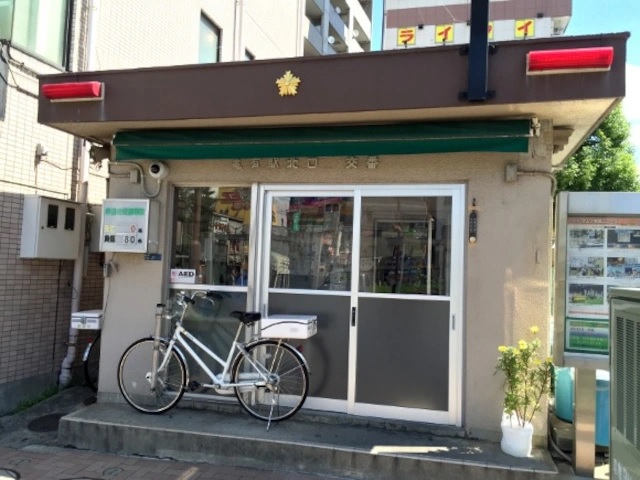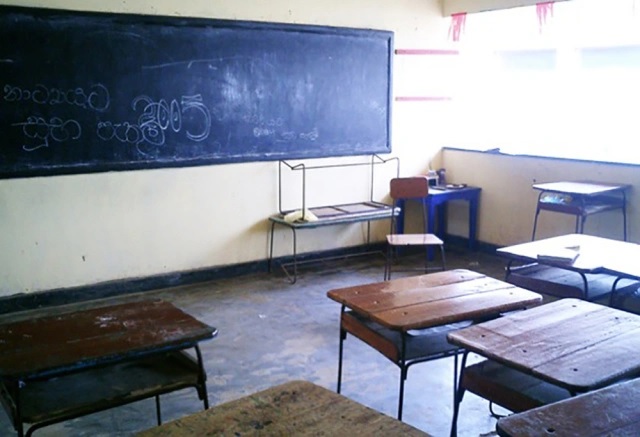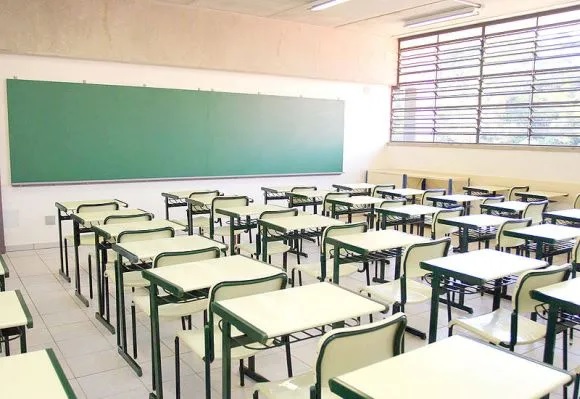
As our reporter’s daughter enters elementary school, he talks with an education veteran about how to deal with bullying.
Time really does fly. It seems like only yesterday Rei, the daughter of our Japanese-language reporter P.K. Sanjun, was just a baby, occasionally coming in for a day at SoraNews24 headquarters with her daddy.
Now, though, she’s six years old, and as of this spring she’s started going to elementary school. It’s a proud moment for P.K., but also a worrying one. In recent years, there’s been increased awareness about bullying at schools in Japan, and it’s now something that could directly affect P.K.’s family.
But what should parents in Japan do if they think their child has become the victim of bullying? To get some insight, P.K. spoke with someone we’ll call “A-san.” While A-san isn’t a teacher himself, he is an education specialist who works in a school, and he sat down with P.K. to discuss the topic.
P.K.: To start, when schools receive a report of bullying, how do they respond?
A-san: When there’s suspicion, no matter how small, that bullying is happening in the school, the teacher has to look into it and confirm what’s happening. There are probably still some schools that try to cover things up or sweep them under the rug, but at all the schools I’ve worked at, they took all reports seriously.
P.K.: Specifically, how do they handle the situation?
A-san: They listen to what the child who came forward or their parents have to say, and then they speak with the other child or children who are involved. From there, the usual way things proceed is for them to give instructions and offer guidance to the children in line with the wishes of the child who came forward. In almost all cases, the incident stems from still-insufficient development of an understanding of how to interact with other people, so it’s rarely as simple as one side being a complete victim and the other a complete perpetrator, and there are things for both children to do differently.
P.K.: It sounds like a very difficult situation.
A-san: While the teacher is handling that, they also have to make sure that lessons during class time are proceeding as usual, work on preparing upcoming lessons, and take care of various administrative responsibilities. Even when everything is going smoothly, there are very few teachers who live work at the scheduled time, without doing overtime. And while a teacher is dealing with one disciplinary problem, it’s not like every single other student in class is behaving himself or herself. Almost every day there’s going to be something that has to be done in that area, so many times the teacher is dealing with multiple issues with different students.
P.K.: I see. So they can’t devote 100 percent of their time to dealing with bullying.
A-san: Bullying is a particularly hard issue. Kids’ minds are still developing, so it’s not easy to get an accurate report of what’s going on from them. There aren’t many kids who can clearly remember all of the events that took place, and in what order. Teachers don’t have the same level of questioning skills that police officers do.
Even if the teacher is doing their best to draw out the accurate story of what happened, the parents on both sides will get angry and start saying “Are you calling my child a liar?” Many times, teachers are so hounded by parents that they take a leave of absence after dealing with major bullying incidents.
P.K. and A-san’s conversation then turned to a case in which a bully had been extorting money from a classmate at an elementary school, and the victim’s parents went straight to the police about it, without first raising the issue with the child’s teacher of school staff.
A-san: Personally, I would definitely like to see parents be proactive in contacting the police. Unless the parents of the child who is coming forward contact them it’s difficult for the school to initiate getting the police involved. It’s my personal opinion, and I also get the impression that many teachers would also like parents of bullied children to contact the police. Doing so will have a positive effect on protecting them in the space where they learn.
As A-san himself said twice, going straight to the police with bullying problems is his personal opinion, and not the official stance of the schools he’s worked at. P.K. has also heard tales of parents going to the police and being told that law enforcement can’t do anything for a mere schoolyard bullying complaint, so he’s still not sure what the best course of action is, but his talk with A-san reminded him of the options he’ll have should his daughter run into trouble with bullies in the years to come.
Top image ©SoraNews24
Insert images: SoraNews24, Wikipedia/Hidrafil
● Want to hear about SoraNews24’s latest articles as soon as they’re published? Follow us on Facebook and Twitter!
[ Read in Japanese ]



 You can now buy bully insurance for your kids in Japan
You can now buy bully insurance for your kids in Japan Tough-as-nails bullied Japanese schoolgirl stays home from school, but not because she was sad
Tough-as-nails bullied Japanese schoolgirl stays home from school, but not because she was sad Japanese Twitter user’s sad memory of when school literally refused to look at bullying problem
Japanese Twitter user’s sad memory of when school literally refused to look at bullying problem Is Japan overworking its teachers? One exhausted educator says, “YES!”
Is Japan overworking its teachers? One exhausted educator says, “YES!” Japan’s new difficult-to-drink-from beer glass protects your liver, but it’s a brutal experience
Japan’s new difficult-to-drink-from beer glass protects your liver, but it’s a brutal experience How to order snacks on a Shinkansen bullet train in Japan
How to order snacks on a Shinkansen bullet train in Japan Demon Slayer: Kimetsu no Yaiba gets new roller coaster attractions and food at Universal Studios Japan
Demon Slayer: Kimetsu no Yaiba gets new roller coaster attractions and food at Universal Studios Japan New Pokémon ice cream, dessert drinks, and cool merch coming to Baskin-Robbins Japan【Pics】
New Pokémon ice cream, dessert drinks, and cool merch coming to Baskin-Robbins Japan【Pics】 Burger King Japan suddenly adds Dr. Pepper and Dr. Pepper floats to its menu nationwide
Burger King Japan suddenly adds Dr. Pepper and Dr. Pepper floats to its menu nationwide Hello, cosmetics! Clinique teams up with Hello Kitty this summer for first-time collaboration
Hello, cosmetics! Clinique teams up with Hello Kitty this summer for first-time collaboration “The most Delicious Cup Noodle in history” – Japan’s French Cup Noodle wins our heart【Taste test】
“The most Delicious Cup Noodle in history” – Japan’s French Cup Noodle wins our heart【Taste test】 To combat declining birth rate, Japan to begin offering “Breeding Visas” to foreigners
To combat declining birth rate, Japan to begin offering “Breeding Visas” to foreigners Starbucks teams up with Japanese shochu brewery for a whole new coffee experience
Starbucks teams up with Japanese shochu brewery for a whole new coffee experience Studio Ghibli releases giant Totoro plushies in Japan
Studio Ghibli releases giant Totoro plushies in Japan Nintendo history you can feel – Super NES, N64, and GameCube controllers become capsule toys
Nintendo history you can feel – Super NES, N64, and GameCube controllers become capsule toys Starbucks releases a cute Frappuccino and Unicorn Cake…but not in Japan
Starbucks releases a cute Frappuccino and Unicorn Cake…but not in Japan Kyoto Tower mascot termination reveals dark side behind cute Japanese characters
Kyoto Tower mascot termination reveals dark side behind cute Japanese characters McDonald’s Japan’s Soft Twist Tower: A phantom ice cream only sold at select branches
McDonald’s Japan’s Soft Twist Tower: A phantom ice cream only sold at select branches Yabai Ramen: What makes this Japanese ramen so dangerous?
Yabai Ramen: What makes this Japanese ramen so dangerous? Finally! Nintendo Japan expands Switch 8-bit controller sales to everybody, Online member or not
Finally! Nintendo Japan expands Switch 8-bit controller sales to everybody, Online member or not Japanese government wants to build luxury resorts in all national parks for foreign tourists
Japanese government wants to build luxury resorts in all national parks for foreign tourists 10 things you should buy at 7-Eleven in Japan
10 things you should buy at 7-Eleven in Japan Studio Ghibli releases anime heroine cosplay dresses that are super comfy to wear
Studio Ghibli releases anime heroine cosplay dresses that are super comfy to wear Woman charged for driving suitcase without a license in Osaka
Woman charged for driving suitcase without a license in Osaka Studio Ghibli unveils My Neighbour Totoro miniature house model
Studio Ghibli unveils My Neighbour Totoro miniature house model Kyoto experiencing problems with foreign tourists not paying for bus fares, but not on purpose
Kyoto experiencing problems with foreign tourists not paying for bus fares, but not on purpose Fighting mild hunger with a Japanese soda that turns into jelly in the stomach【Taste test】
Fighting mild hunger with a Japanese soda that turns into jelly in the stomach【Taste test】 Studio Ghibli’s Howl’s Moving Castle tapestry unveiled in Japan for first time
Studio Ghibli’s Howl’s Moving Castle tapestry unveiled in Japan for first time McDonald’s new Happy Meals offer up cute and practical Sanrio lifestyle goods
McDonald’s new Happy Meals offer up cute and practical Sanrio lifestyle goods Sales of Japan’s most convenient train ticket/shopping payment cards suspended indefinitely
Sales of Japan’s most convenient train ticket/shopping payment cards suspended indefinitely Sold-out Studio Ghibli desktop humidifiers are back so Totoro can help you through the dry season
Sold-out Studio Ghibli desktop humidifiers are back so Totoro can help you through the dry season Japanese government to make first change to romanization spelling rules since the 1950s
Japanese government to make first change to romanization spelling rules since the 1950s Foreigner’s request for help in Tokyo makes us sad for the state of society
Foreigner’s request for help in Tokyo makes us sad for the state of society Ghibli founders Toshio Suzuki and Hayao Miyazaki contribute to Japanese whisky Totoro label design
Ghibli founders Toshio Suzuki and Hayao Miyazaki contribute to Japanese whisky Totoro label design Doraemon found buried at sea as scene from 1993 anime becomes real life【Photos】
Doraemon found buried at sea as scene from 1993 anime becomes real life【Photos】 Tokyo’s most famous Starbucks is closed
Tokyo’s most famous Starbucks is closed Princesses, fruits, and blacksmiths: Study reveals the 30 most unusual family names in Japan
Princesses, fruits, and blacksmiths: Study reveals the 30 most unusual family names in Japan Japanese teacher simply asks to be treated like a human being
Japanese teacher simply asks to be treated like a human being Teacher facing charges after swallowing class pet alive
Teacher facing charges after swallowing class pet alive “Bully insurance” now on the rise, with many more practical uses than just insuring bullying
“Bully insurance” now on the rise, with many more practical uses than just insuring bullying Curry restaurants across Japan create social media movement: “Don’t blame the curry!”
Curry restaurants across Japan create social media movement: “Don’t blame the curry!” Japanese elementary school teacher under fire after selling students’ personal info online
Japanese elementary school teacher under fire after selling students’ personal info online Ninety-nine problems, but looking like a 5-year-old playa ain’t one of them
Ninety-nine problems, but looking like a 5-year-old playa ain’t one of them “Hate summer homework, kids? We’ll do it for you!” A disturbingly booming business in Japan
“Hate summer homework, kids? We’ll do it for you!” A disturbingly booming business in Japan Parents of bullied teenage girl who committed suicide commission portrait to “attend” Seijinshiki
Parents of bullied teenage girl who committed suicide commission portrait to “attend” Seijinshiki Harsh retribution for school bullies using Japanese law suggested on Twitter, but it’ll take time
Harsh retribution for school bullies using Japanese law suggested on Twitter, but it’ll take time ALT in Japan asked to remove earrings by Board of Education
ALT in Japan asked to remove earrings by Board of Education Don’t like trigonometry? Then you’re just like Hitler, says Japanese high school English teacher
Don’t like trigonometry? Then you’re just like Hitler, says Japanese high school English teacher How a bar in Kabukicho scammed one diner out of their money, and how it can happen to you too
How a bar in Kabukicho scammed one diner out of their money, and how it can happen to you too
Leave a Reply